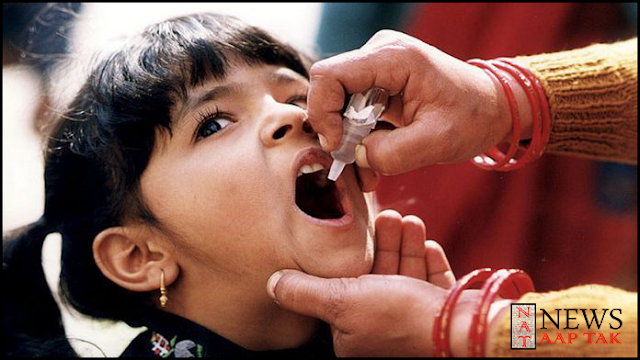In a setback to India’s polio eradication programme, several batches of oral polio vaccine produced by a state-run vaccine maker have failed quality tests. The Central Drugs Laboratory (CDL) in Kasauli, which conducts quality tests, has declared 16 batches manufactured by Bharat Immunological and Biologicals Corp. Ltd (Bibcol) as “substandard” after they failed sterility tests. The public sector undertaking supplies vaccines to the government’s polio eradication programme.
The latest development is likely to hurt the government’s sub-national polio round slated to take place in June. This is a follow-up round held in areas that are at highest risk of a polio outbreak. Under the programme, doses of oral polio vaccine (OPV) are given to children under the age of five years.
During the tests conducted in April, CDL Kasauli, which tests vaccines before they are dispatched across India, said 30,000 vials—one vial has 20 doses of OPV—were substandard. Every day, CDL Kasauli tests two batches of polio vaccines for potency. “The vaccines by Bibcol failed sterility tests, which means that bacteria growth has been found in these vaccines. These batches will have to be destroyed and cannot be administered,” said a senior health ministry official, requesting anonymity.

CDL Kasauli has sent the report to India’s drug regulatory authority, which will initiate an inquiry into the reasons for contamination. “Bibcol has been told to stop distribution of OPV,” said another ministry official, also requesting anonymity.There are five major manufacturers of the bivalent vaccine in India—Bio-Med, Bharat Biotech International, Panacea Biotec, and Bibcol and Mumbai-based Haffkine Bio Pharmaceutical Corp. Ltd.
India’s polio programme has already been under stress since last September after strains of polio virus type 2, believed to have been eradicated, were found in vaccines made by Ghaziabadbased Bio-Med. The company was supplying vaccines for the government-run universal immunization programme. Around 50,000 vials of “adulterated” vaccine had reached Uttar Pradesh and Telangana. The government swung into action and barred the company from supplying the vaccines.
With Bibcol, too, coming under the scanner, the implementation of the sub-national programme, expected to start on June 16, will likely be hurt. Approximately 90 million doses of polio vaccine are needed for the sub-national programme. Pradeep Haldar, deputy commissioner for immunization at the health ministry, said there is no reason to panic. “There are multiple suppliers and we also maintain buffer stock which is available with us. There is no shortage and we will be able to hold the sub national round without any problem or delay.”











0 comments:
Post a Comment